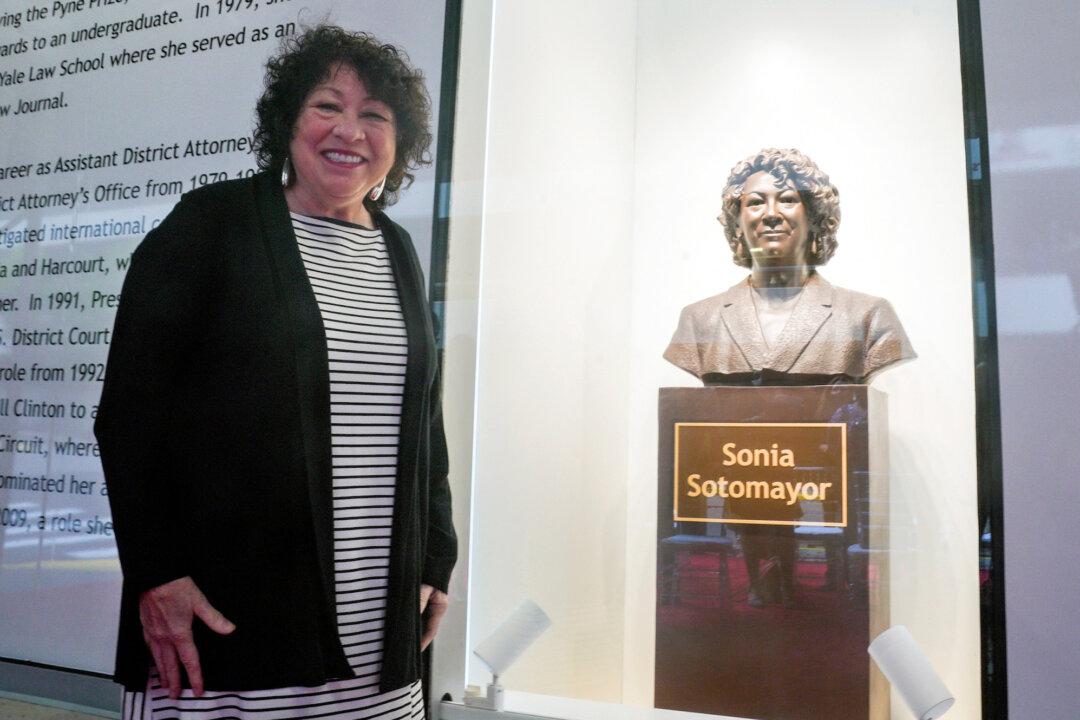U.S. Supreme Court Justice Sonia Sotomayor said the conservative majority on the Court is overturning so many longstanding precedents so quickly that public confidence in it is flagging.
“I think my Court would probably gather more public support if it went a little more slowly in undoing precedent,” Sotomayor said on Feb. 5 in remarks at the University of Louisville Louis D. Brandeis School of Law in Kentucky.





